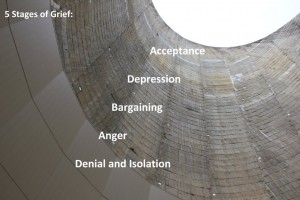 It’s a nice evening. Just looking back in time while trying to ponder how much it is that I have changed since I moved to Canada from Europe. In the end, and I had to consider this carefully, I decided to say “a lot”. Or maybe “completely”. The change happened gradually and not only it was ‘big’ but also ‘harsh’. It feels good now, but it was a long journey. I am happy I took it. This evening I came across what Darwin said, and even though he is not one of my favorites, I’ll quote: “It is not the strongest or the most intelligent who will survive but those who can best manage change.” Isn’t that something? Just think a bit more about it.
It’s a nice evening. Just looking back in time while trying to ponder how much it is that I have changed since I moved to Canada from Europe. In the end, and I had to consider this carefully, I decided to say “a lot”. Or maybe “completely”. The change happened gradually and not only it was ‘big’ but also ‘harsh’. It feels good now, but it was a long journey. I am happy I took it. This evening I came across what Darwin said, and even though he is not one of my favorites, I’ll quote: “It is not the strongest or the most intelligent who will survive but those who can best manage change.” Isn’t that something? Just think a bit more about it.
Category Archives: It was already said…
So, you’re in Canada now!
So, you’re in Canada now. You’re excited and ready for a new start. You’ve done your research – or some research – as many told you that the more you know, the better equipped you’ll be to handle the ups and downs you’re most likely going to face in your new country. As we’re taught in school, one may “ace it” at a theoretical level, but realize soon enough that the implementation phase still requires some work. Your knowledge helps you through the initial excitement and moves you on to the difficult part. Here, you have to put forward your credentials and work experience with the same confidence. You also need to ensure you’re able to keep your cool when harshly labeled “overqualified” in a job interview. Just another one of the many.
On the other side, you have all those sweet and fresh memories of the position you just left behind, along with former co-workers, extended family, support network, and everything else. What’s more, while getting ready for the big move, you couldn’t possibly foresee the loss you’ll be experiencing once uprooted. It is hard to see how catastrophic will that feel at several levels, because none of us is able to grieve before the loss actually happens. On a deeper level, this type of loss has been often associated with the one people experience when they lose a close family member to a tragic death. Researchers divided this process into stages of emotional response called “stages of grieving”.
In her book On Death and Dying (1969), Elizabeth Kubler-Ross talks about 5 Stages of Grief:
Denial and Isolation
Anger
Bargaining
Depression
Acceptance
Considered to be normal and expected to happen, these five stages are very similar to those a new immigrant faces once uprooted. People may experience these stages very differently: some might feel stuck in a certain stage, but play fast forward through another. This presented above sequence may be followed to the book or not, yet typically no one gets to skip any of these stages. Reminds me of Kafka. Some researchers say that there are actually seven stages of grief, while others argue that this theory doesn’t stand up very well. Nevertheless, my story today is not about who’s right or who’s wrong.
Over the years I have seen myself – and several people close to me – going through these grieving stages. At the beginning I didn’t pay much attention to the process as a whole, but it has become clear now that being able to recognize and understand these stages gives one a chance to identify, and eventually stop, a repetitive cycle.
Keep in mind that grieving is a healing process – this affirmation is really important to our emotional comfort. Rolling through these stages enables us to accept the new reality we are moving into. Acceptance implies that we build a realistic and detailed plan, become certain about getting a job, and follow a solid strategy to actually obtain it. Even if this may take a while, we are all certain that it is very unlikely to stay unemployed or underemployed forever.
Let’s look at it from a different perspective. You are now in a new country, uprooted, and facing the risk of losing your professional identity, as your support network (people who respected you for your achievements) is missing. You have now moved from introducing yourself as “I’m the HR Manager at ABC” to “I am looking for a new opportunity” or “I’m looking for a job.” Don’t be disappointed or angry – it’s a waste of time. Instead, get support and develop a good strategy. To reach your employment goal will take flexibility, plenty of patience, and time. Many of us consider the process done once past the first two stages (denial and anger): “That’s it, we’re accepting the situation as is, we’re just fine.” Yet at this point, we have only reached to the bargaining stage of this grieving process. During this stage it’s still difficult to set an employment goal as we left the door behind half-open. Are we faking acceptance? Most likely. We resign. Resignation only deepens our pain and makes us bear our loss quietly.
Acceptance comes with the realization that “this is better” and by “this” we mean the present situation as a whole. One can hardly fake it, it is something that comes from inside, a glow anyone else will see right away. As the saying goes, each time a door closes, a new one opens – and most of the times it’s for the best. However, when new to a place, let that door behind you close firmly – let go of it – so you can look forward to the new one that’s opening right in front of you. It’s almost like in a passing rite, you need to perform it properly to its very last detail, or else you will be lingering in that liminal state between the two worlds forever.
When moved into the acceptance stage – a positive aura glows all around us and it becomes contagious. That’s the confidence you need to project when meeting a potential employer or during a job interview! It is this image, this positive aura, that weighs a lot in the final decision of your potential employer! Just remember – interviewers are not looking for a canned, rehearsed personality, but for a true attitude – and they have ways to make you reveal it. Unfortunately, when you’re interviewing before you’ve arrived to the acceptance stage is the same as when you’re trying to sell a broken car.
Respect your pain and find a way to transition into happiness. Establish a firm daily routine to help you stay focused. Internationally trained professionals belonging to a variety of industries are moving through a very complex transitional experience. Learning how to navigate through and manage these new circumstances will help you manage your own life successfully. Take time to stop and listen to other people, who might be in a worse spot than you are. Helping others will in turn help you realize that not only you’re making a difference in someone else’s life, but in your own.
Magdalena Mot
How To Build a Professional Network
Professionals who have recently relocated to Canada (or any other country for that matter) are comparable to new graduates when it comes to competing on the local job market. They have little to no local work experience. Yet we should be looking at a few major differences. They bring to the table an overseas work experience, as well as a significant life experience, which situates them among the strong candidates in this global economy. Of course, anyone new feels highly uncomfortable when it comes to understanding the local culture and specific workplace practices. The feeling that you don’t belong is weakening your self-confidence. But the most difficult part is the lack of support and not having a local professional network to depend on.
If I could encourage employers who are interviewing someone new to this culture (and maybe even to the official languages) I would encourage them to imagine themselves in a new country. To illustrate, think of a Canadian moving to Germany. For good. With their whole family. What would it take for that person to be ready to take such a step? How long would it take for them to adjust to the culture, language, find a job, and apply for it? How much courage, initiative, and strong planning skills do you think they would need to make such a move and start their life over? Then look again at the courageous person sitting right in front on you. They have all those skills.
 Building relationships takes a long time and if you haven’t accounted for that time before arriving to Canada, start networking as soon as you can. This may be more important than evaluating your credentials or even going back to school to get new ones. Why? Because in this culture a good reference will magnify the professional portfolio you’re providing to employers by adding an important ingredient: trust. This will also automatically reinforce your position as a candidate for a job.
Building relationships takes a long time and if you haven’t accounted for that time before arriving to Canada, start networking as soon as you can. This may be more important than evaluating your credentials or even going back to school to get new ones. Why? Because in this culture a good reference will magnify the professional portfolio you’re providing to employers by adding an important ingredient: trust. This will also automatically reinforce your position as a candidate for a job.
What is networking? To network doesn’t mean you’d turn into a ‘networking mongrel’ and (1) collect a meaningless stack of business cards without ever following-up, (2) talk and focus on your own agenda instead of listening and gathering information, or (3) superficially intrude into a conversation. When meeting with someone you respect professionally take the time to build a real connection. There must be a mutual benefit when you make a connection, it’s a two way street.
One of the most frequent questions I get from my clients or students is “How do I get to talk to a professional in my field if I simply don’t know anyone?” Yes, I agree, there is no easy way to do that, but here are a few steps that anyone should be able to follow with ease.
1. Know what you want – this may require extensive research, but if you don’t know what you want, nobody can help you. Most of this basic research can be completed even before arriving to Canada using the available websites, articles, online tools, and social media networks. Your personal branding message should reflect that. You haven’t worked on your personal brand yet? Meet a career coach or advisor.
2. Prepare/ make a target list (of both professionals and companies you would like to work for) and ensure you have acquired all relevant information, including LinkedIn connections.
3. Develop a list of specific questions you may ask in a possible informational interview and start a strategic planning around setting such meetings in the near future.
4. Avoid relying on friends only (or relatives). This is your career and you should be carefully cross-referencing all the information you can gather, using updated and reliable sources.
5. Get trained before connecting with professionals in your field/industry; it’s great if you can receive at least some basic coaching from a certified career advisor on how to proceed: don’t blow your chances by showing up unprepared.
6. First impressions matter. Have some good questions ready (write them down), be self-aware, curios, open, humble, authentic, and considerate.
7. Keep notes. Once you commence your ‘career battle’ and start on building relationships, keep an activity tracker spreadsheet or have a follow-up system in place and connect with your new acquaintances consistently.
Magdalena Mot
On laughter
“Laugh and the world laughs with you; weep, and you weep alone.”
